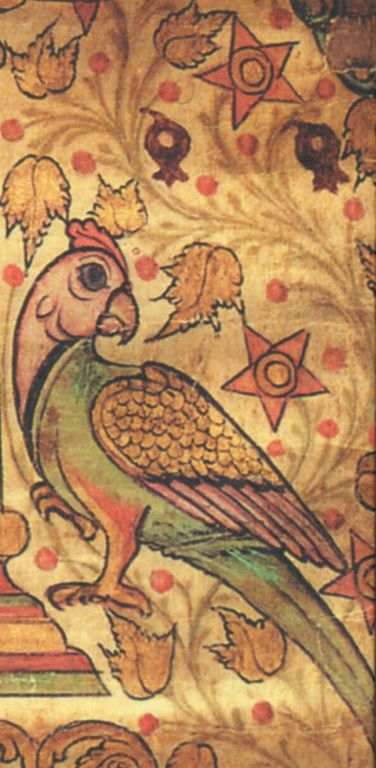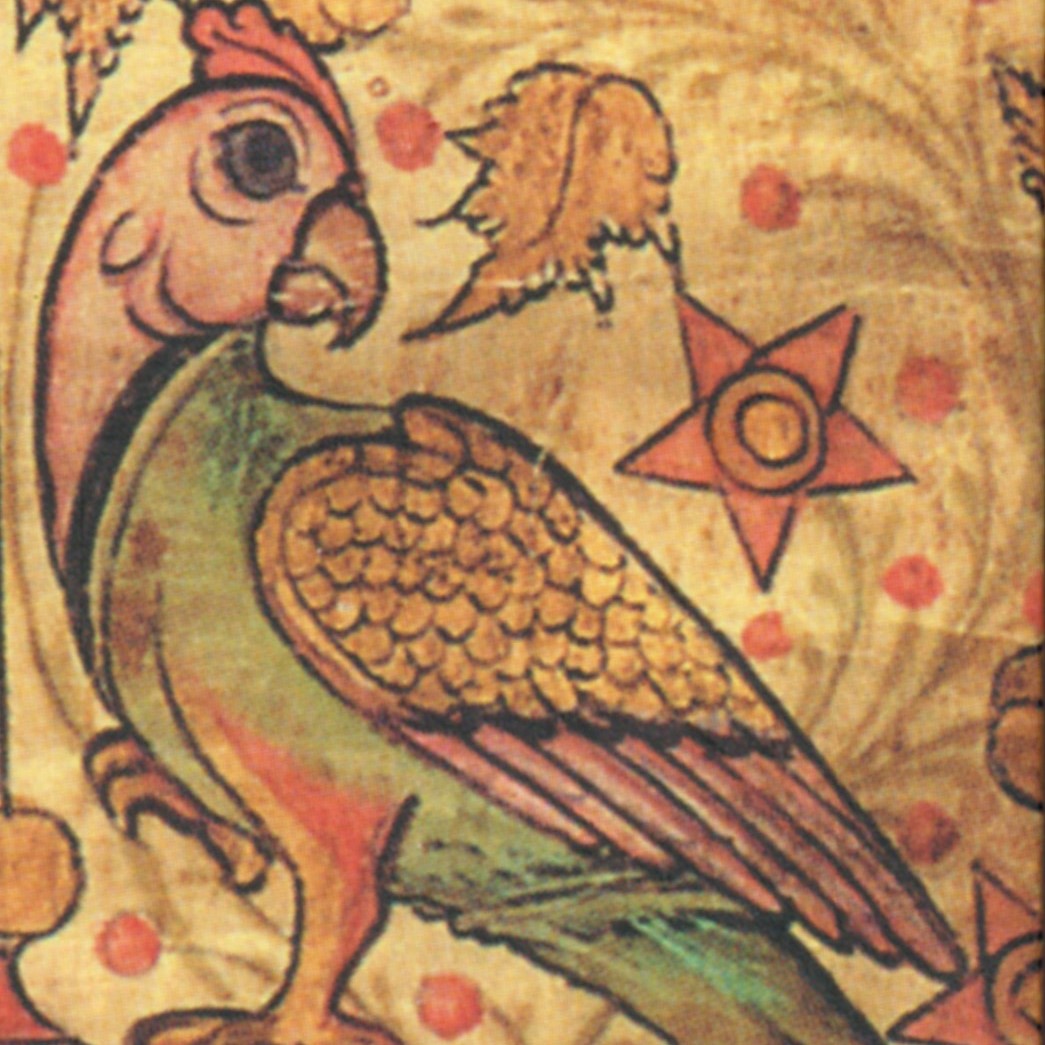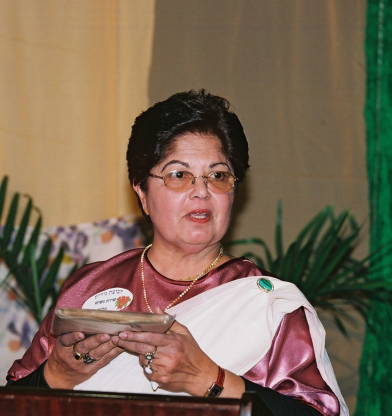1981
68. Creator Who Gave Discernment
Rahel Nehemiah, Toba Sofer and others. Recorded by Avigdor Herzog, Moshav Taoz, December 23, 1981. CD Track 34; IV-19.
Āti mūla tāyi bŏrāḷe eeeyī—āyěyā
Ālaṃ ŏkka paḍaccavane eeeyī—āyěyā1. Primary Cause and primary Essence, Eeeyī—āyěyā
O Creator of the world, Eeeyī—āyěyā2. You Who granted us discernment, Eeeyī—āyěyā
The sense like a lamp, to see and discern, Eeeyī—āyěyā3. Let there be praise, praise in our minds; Eeeyī—āyěyā
Let there always be praise in the mind. Eeeyī—āyěyā4. Give us the will to worship You, Eeeyī—āyěyā
O Lord of the world, Tambiranĕ. Eeeyī—āyěyā5. Lord of the world, You give knowledge to all. Eeeyī—āyěyā
You are the ruler of all time. Eeeyī—āyěyā6. You are the One Who knows all the past. Eeeyī—āyěyā
You are the One Who holds the beginning. Eeeyī—āyěyā7. You are the One Who is praised before all. Eeeyī—āyěyā
You are the One Who counts the time. Eeeyī—āyěyā8. You are the One Who is never bewildered. Eeeyī—āyěyā
You are never frightened by truth. Eeeyī—āyěyā9. You are not moved by the comings and goings; Eeeyī—āyěyā
With comings and goings, You are not moved. Eeeyī—āyěyā10. I went on counting the measures of chili, Eeeyī—āyěyā
Rather than counting the measures of pearls. Eeeyī—āyěyā11. Because of the lure of worldly delusions, Eeeyī—āyěyā
I counted what could be seen by day. Eeeyī—āyěyā12. This happened so many years ago, Eeeyī—āyěyā
To smaller people of many kinds. Eeeyī—āyěyā13. Many of them left their home, Eeeyī—āyěyā
Left their home and never returned. Eeeyī—āyěyā14. Sinners who now are burning in hell, Eeeyī—āyěyā
Pay attention! Note very well, Eeeyī—āyěyā15. While weeping for the homeland you left. Eeeyī—āyěyā
You must be strict to worship well. Eeeyī—āyěyā16. While in hell there will be doubt. Eeeyī—āyěyā
Let there be hope and the sun will shine. Eeeyī—āyěyā17. Those servants who do not run away— Eeeyī—āyěyā
They will receive their reward in time. Eeeyī—āyěyā
18. A life that is lived without going astray, Eeeyī—āyěyā
Will be more than diamonds and pearls. Eeeyī—āyěyā19. Go to the Almighty God with praise; Eeeyī—āyěyā
Go to the Praiseworthy God and pray. Eeeyī—āyěyā20. Praise, praise to the Holy God. Eeeyī—āyěyā
Praise Him forever; forever praise! Eeeyī—āyěyā
This devotional “clapping” song is first noteworthy for its memorable images, and then also for a personal statement, apparently in a woman’s voice. The first stanzas praise God for creating the human power of discernment, comparing this “sense” to a lamp that makes it possible to see and understand important differences. The song then offers a shower of descriptive images of the infinite and unchanging Deity who “counts the time” but is not “moved by comings and goings.” But despite this God-given capacity to discern, and in contrast to the Creator’s infinite wisdom and knowledge, stanzas 10 and 11 portray the vivid lament of a woman who regrets having been so caught up in “worldly delusions” that she went on with the mundane task of counting chili peppers (certainly an essential process for Kerala cooking) instead of the “measures of pearls” which may symbolize her spiritual treasures.
Stanza 12 introduces the plight of sinners who “leave their homeland” as opposed to the rewards of a life that is “lived without going astray.” Though Ruby Daniel interpreted the image of leaving home as that of Jews leaving Jerusalem, here the “homeland” may refer poetically to the world of virtue and goodness, especially as it is contrasted with that of sin and darkness. I am not aware of references in other Malayalam Jewish songs to “sinners burning in hell.”
This song is found mostly in notebooks from Kadavumbhagam-Kochi, and two of those notebooks include the rhythmic “eeeyi-ayeya” chorus repeated after each line when the song was sung. When it was performed and recorded in 1981 by Kadavumbhagam women in Moshav Taoz, as part of their circular clapping dance for Hanukkah, it was second in the sequence of songs, right after the invocational “Lord from the Beginning” (song 61) and followed immediately by the Parrot Song (song 2b), which also has an “ayyayya” chorus.
Our translation follows that of Scaria Zacharia in 2001, based on an earlier translation by Ruby Daniel. For another translation, see Gamliel 2009, 505–507.







